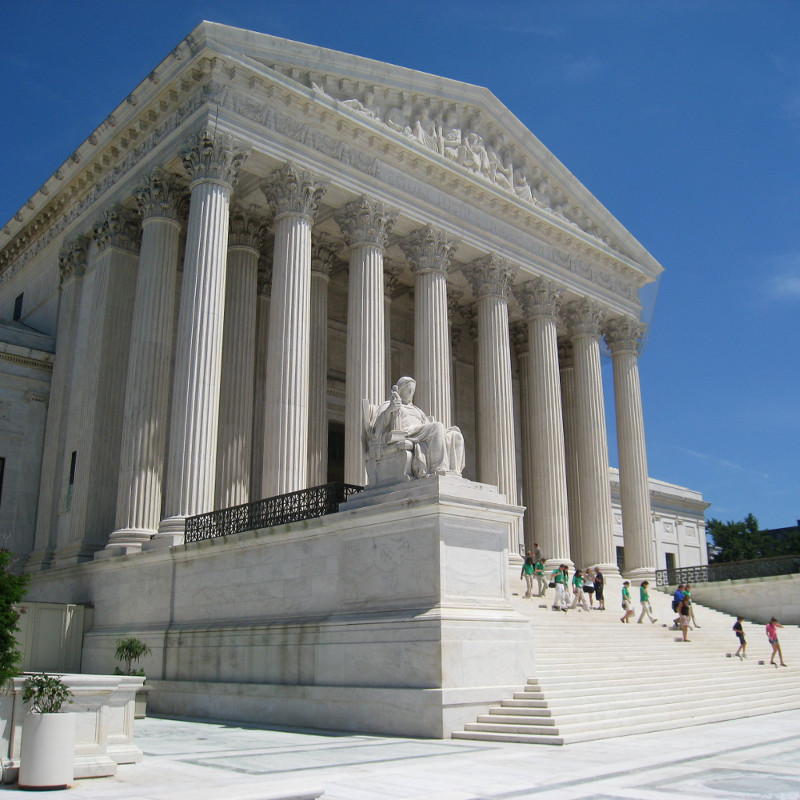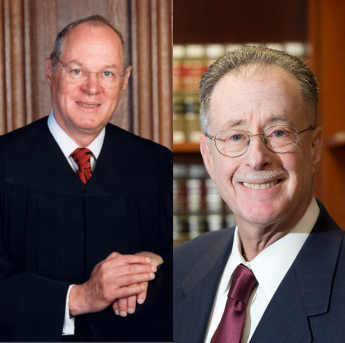On the Docket’s Preview of March Supreme Court Arguments
The Court is making the jump from seven cases heard in February to eleven in March, while still maintaining its eight-justice bench. Each case is fairly notable, with two important patent cases, several criminal law cases, and a case significantly impacting religiously affiliated organizations and their employees. These cases show that the bench is prepared... Read More
Peña-Rodriguez v. Colorado: The Ultimate Safeguard Against Juror Racial Bias?
March 6, 2017 Peña-Rodriguez v. Colorado, 580 U.S. ___ (2017) (Kennedy, J.). Response by Professor Stephen Saltzburg Geo. Wash. L. Rev. On the Docket (Oct. Term 2016) Slip Opinion | New York Times | SCOTUSblog Peña-Rodriguez v. Colorado: The Ultimate Safeguard Against Juror Racial Bias? The Issue On March 6, 2017, the Supreme Court resolved an important... Read More
Blazing a New Trail: Using a Federalism Standard of Review in Marijuana Cases
Sandra M. Praxmarer · March 2017 85 Geo. Wash. L. Rev. Arguendo 25 The current marijuana conundrum continues to cause conflict and tension between the state and federal governments and creates uncertainty for those who engage in actions legal under state law but illegal under federal law. Any challenge to the constitutionality of marijuana’s scheduling... Read More
Buck v. Davis: Fulfilling the Promise of Justice
Buck v. Davis, 580 U.S. ___ (2017) (Roberts, J.). Response by Robin M. Maher Geo. Wash. L. Rev. On the Docket (Oct. Term 2016) Slip Opinion | New York Times | SCOTUSblog Fulfilling the Promise of Justice The State of Texas spent twenty years trying to execute Duane Buck after securing a death sentence that was... Read More
On the Docket’s Preview of February Supreme Court Arguments
So far in 2017, the branches of government are moving at high speed—and the judiciary is no exception. February could be one of the last months with the Supreme Court as an eight-Justice bench. The Justices are using their remaining time before inducting a new member to take on issues relating to, inter alia, officer immunity,... Read More
How the Supreme Court Derailed Formal Rulemaking
Professor Kent Barnett · January 2017 85 Geo. Wash. L. Rev. Arguendo 1 Based on archival research, this Essay explores the untold story of how the Supreme Court in the 1970s largely ended “formal” trial-like rulemaking by federal agencies in two railway cases. In the first, nearly forgotten decision, United States v. Allegheny-Ludlum Steel Corp.,... Read More
A Pool of Candidates Who Refuse to Swim: The 2016 Presidential Election and the Demise of Testing the Waters
Emily M. Hoyle 85 Geo. Wash. L. Rev. 312 In the 2016 presidential election, many candidates delayed announcing their candidacy until long after anyone who was paying attention realized that they were considering a run for office. In the past, these candidates may have been considered to be “testing the waters,” a special status proscribed... Read More
Concealed Carry Through Common Use: Extending Heller’s Constitutional Construction
Nicholas Griepsma 85 Geo. Wash. L. Rev. 284 Since the Supreme Court decided District of Columbia v. Heller in 2008, federal courts have disagreed about (1) the proper standard of review for Second Amendment questions, and (2) whether the Amendment confers a constitutional right to concealed carry a firearm in public. The same “common use”... Read More
You Have Not Because You Ask Not: Why Federal Courts Do Not Certify Questions of State Law to State Courts
Frank Chang 85 Geo. Wash. L. Rev. 251 While exercising diversity or supplemental jurisdiction, federal courts often confront cases where the applicable state law is unclear. Certification procedures provide federal courts with the ability to ascertain the meaning of unclear state law by asking the state supreme court. Despite these procedures, federal courts generally will... Read More
Preemption Deals: Response to Robert Mikos
Aziz Z. Huq 85 Geo. Wash. L. Rev. 226 This Response analyzes the dynamics of federal-state bargaining in the preemption domain in the context of both Congress and federal agencies. It develops both the argument for intergovernmental bargaining, and considers how the circumstances of negotiation and other factors might impede salutary results. Turning to Professor... Read More



